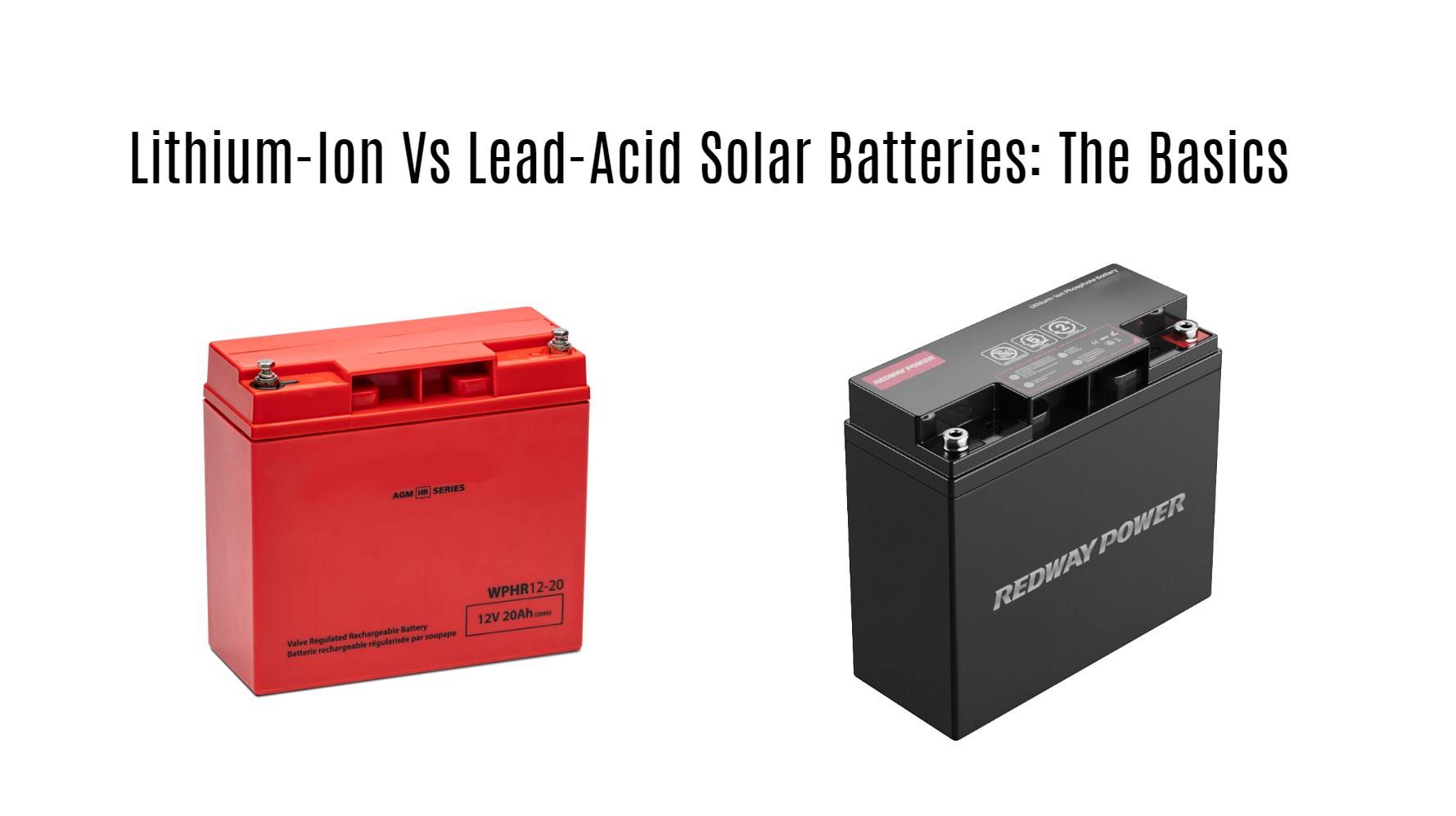When comparing lithium-ion and lead-acid batteries for solar energy storage, understanding their differences is crucial for making an informed decision. Lithium-ion batteries offer higher efficiency and longer lifespans, while lead-acid batteries are generally more affordable. Each type has unique advantages that cater to different energy needs.
What are the key differences between lithium and lead-acid batteries?
The primary differences between lithium-ion and lead-acid batteries include their chemical composition, energy density, efficiency, weight, and lifespan. Lithium-ion batteries use lithium compounds as electrodes, while lead-acid batteries rely on lead dioxide and sponge lead.
| Feature | Lithium-Ion Batteries | Lead-Acid Batteries |
|---|---|---|
| Chemical Composition | Lithium compounds | Lead dioxide and sponge lead |
| Energy Density | Higher (150–250 Wh/kg) | Lower (30–50 Wh/kg) |
| Weight | Lighter | Heavier |
| Lifespan | 10–15 years | 3–5 years |
How do energy efficiencies compare between lithium-ion and lead-acid batteries?
Lithium-ion batteries have a significantly higher energy efficiency compared to lead-acid counterparts. They can achieve efficiencies of around 90% to 95%, meaning most of the stored energy is usable. In contrast, lead-acid batteries typically operate at about 80% to 85% efficiency.
| Battery Type | Energy Efficiency |
|---|---|
| Lithium-Ion | 90% – 95% |
| Lead-Acid | 80% – 85% |
What is the lifespan of lithium versus lead-acid batteries?
Lithium-ion batteries generally have a much longer lifespan than lead-acid batteries. While lithium-ion can last from 10 to 15 years or about 2,000 to 5,000 charge cycles, lead-acid typically lasts only 3 to 5 years with a maximum of around 1,000 cycles.
| Battery Type | Lifespan (Years) | Charge Cycles |
|---|---|---|
| Lithium-Ion | 10 – 15 | 2,000 – 5,000 |
| Lead-Acid | 3 – 5 | Up to 1,000 |
How do charging times differ for lithium-ion and lead-acid batteries?
Charging times vary significantly between these two types:
- Lithium-Ion: Typically charges faster, often reaching full capacity in a few hours.
- Lead-Acid: Slower charging times can take up to several hours or even days depending on the size and state of charge.
What are the advantages of lithium-ion batteries over lead-acid batteries?
Lithium-ion batteries offer several advantages:
- Higher Energy Density: They store more energy in a smaller space.
- Longer Lifespan: They last significantly longer than lead-acid options.
- Lower Maintenance: They require minimal maintenance compared to traditional flooded lead-acid types.
- Faster Charging: They can be charged more quickly than their counterparts.
How do costs compare between lithium-ion and lead-acid batteries?
While initial costs for lithium-ion batteries are higher—typically ranging from $5,000 to $15,000—over time they can be more cost-effective due to their longevity and efficiency. Lead-acid systems may cost between $500 to $1,000 but require frequent replacements.
| Battery Type | Initial Cost | Long-Term Cost Effectiveness |
|---|---|---|
| Lithium-Ion | $5,000 – $15,000 | More cost-effective over time |
| Lead-Acid | $500 – $1,000 | Less cost-effective long-term |
What applications are best suited for each battery type?
Lithium-ion batteries are ideal for residential solar systems where space is limited and efficiency is paramount. They are also suitable for electric vehicles due to their lightweight nature. Conversely, lead-acid batteries work well in applications requiring robustness and lower upfront costs, such as backup power systems or off-grid setups.
Applications Overview
| Application | Best Suited Battery Type |
|---|---|
| Residential Solar Systems | Lithium-Ion |
| Backup Power Systems | Lead-Acid |
| Electric Vehicles | Lithium-Ion |
| Off-Grid Systems | Lead-Acid |
FAQ Section
- Which battery type lasts longer?
Lithium-ion batteries typically last longer than lead-acid batteries, with lifespans of up to 15 years compared to just a few years for lead-acid. - Are lithium-ion batteries worth the higher cost?
Yes, despite their higher initial cost, their longevity and efficiency often make them more cost-effective in the long run. - Can I use a lithium battery in place of a lead-acid battery?
Yes, but ensure that your system is compatible with the different voltage and charging requirements of lithium technology.
Replacement Choices
If you’re considering switching from a traditional battery setup or looking for alternatives to existing models, Redway Battery offers high-quality lithium solutions that can enhance your solar system’s performance while providing longevity and reliability.
Tips for Battery Wholesale Buyers
When considering OEM orders for solar battery solutions, partnering with a reputable manufacturer like Redway Battery, which has over 13 years of experience in producing high-quality lithium products, is essential. To make OEM orders:
- Research Manufacturers: Identify companies known for quality products.
- Request Samples: Evaluate quality before committing to large orders.
- Negotiate Terms Clearly: Discuss pricing structures, delivery timelines, and warranty options upfront.
Redway Battery Expert Insight
“Choosing the right battery technology is crucial for optimizing your solar energy system,” states an expert from Redway Battery. “Lithium-ion technology provides unmatched efficiency and longevity compared to traditional options.”




